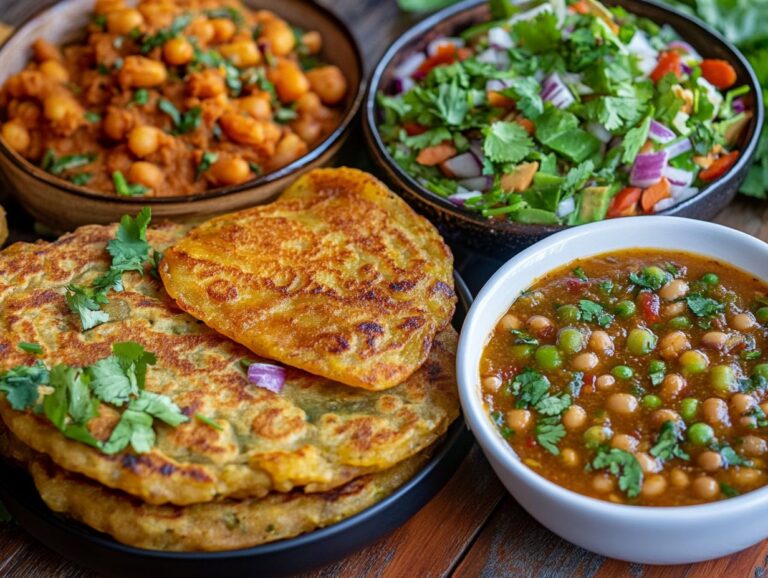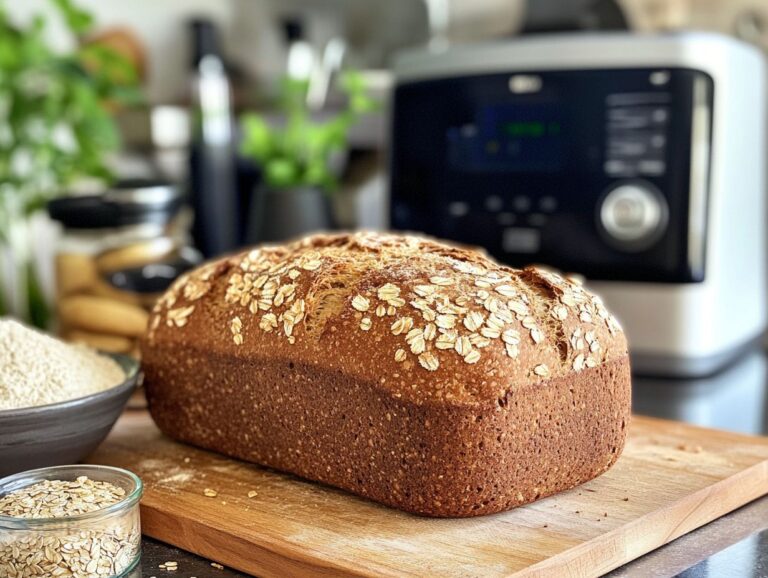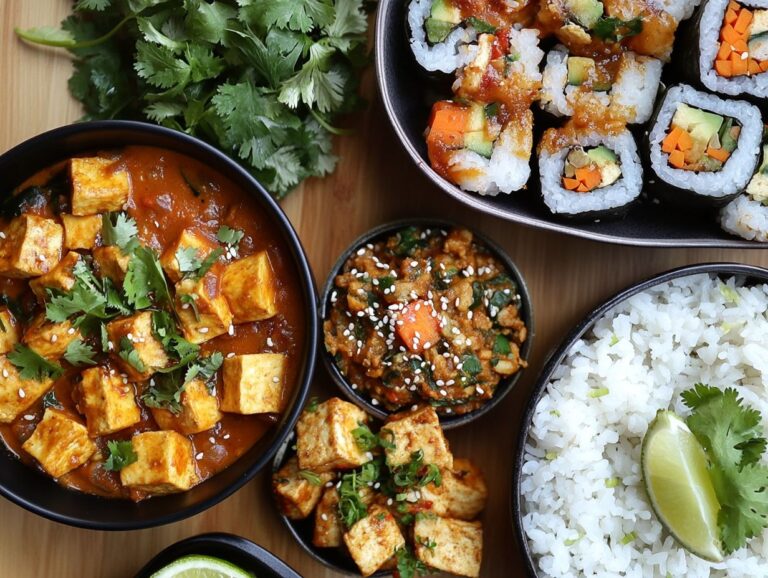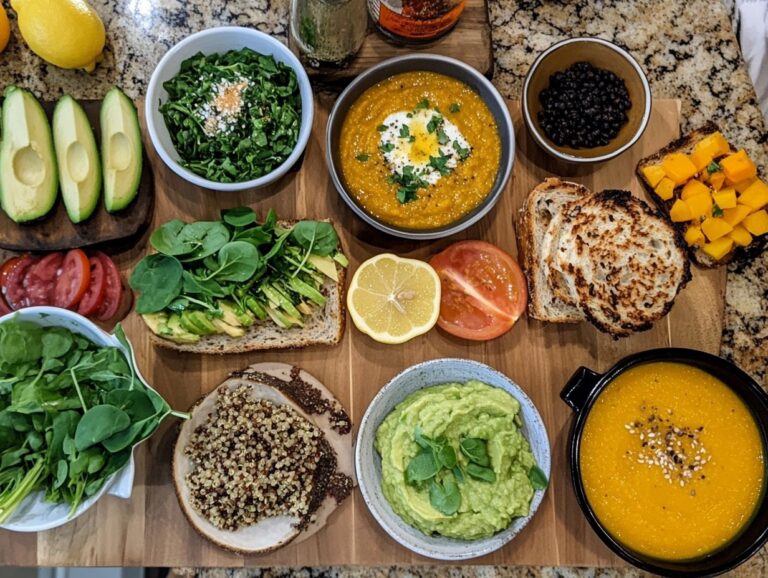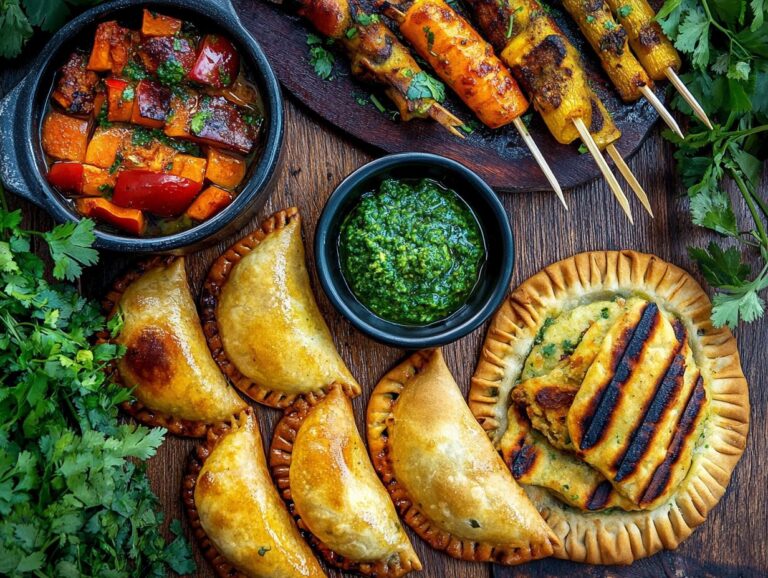Portugal’s vibrant culinary heritage is rich in Mediterranean flavors, making it a treasure trove for plant-based enthusiasts. As veganism continues to gain popularity, traditional Portuguese dishes are being revitalized with fresh, wholesome ingredients. This article explores the rise of plant-based diets in Portugal, highlights commonly used vegan ingredients, and showcases popular vegan adaptations of beloved classics. Discover how to elevate your cooking with nutrient-dense twists and practical tips for creating delicious, balanced vegan meals that celebrate Portugal’s rich gastronomic culture.
The Influence of Mediterranean Flavors
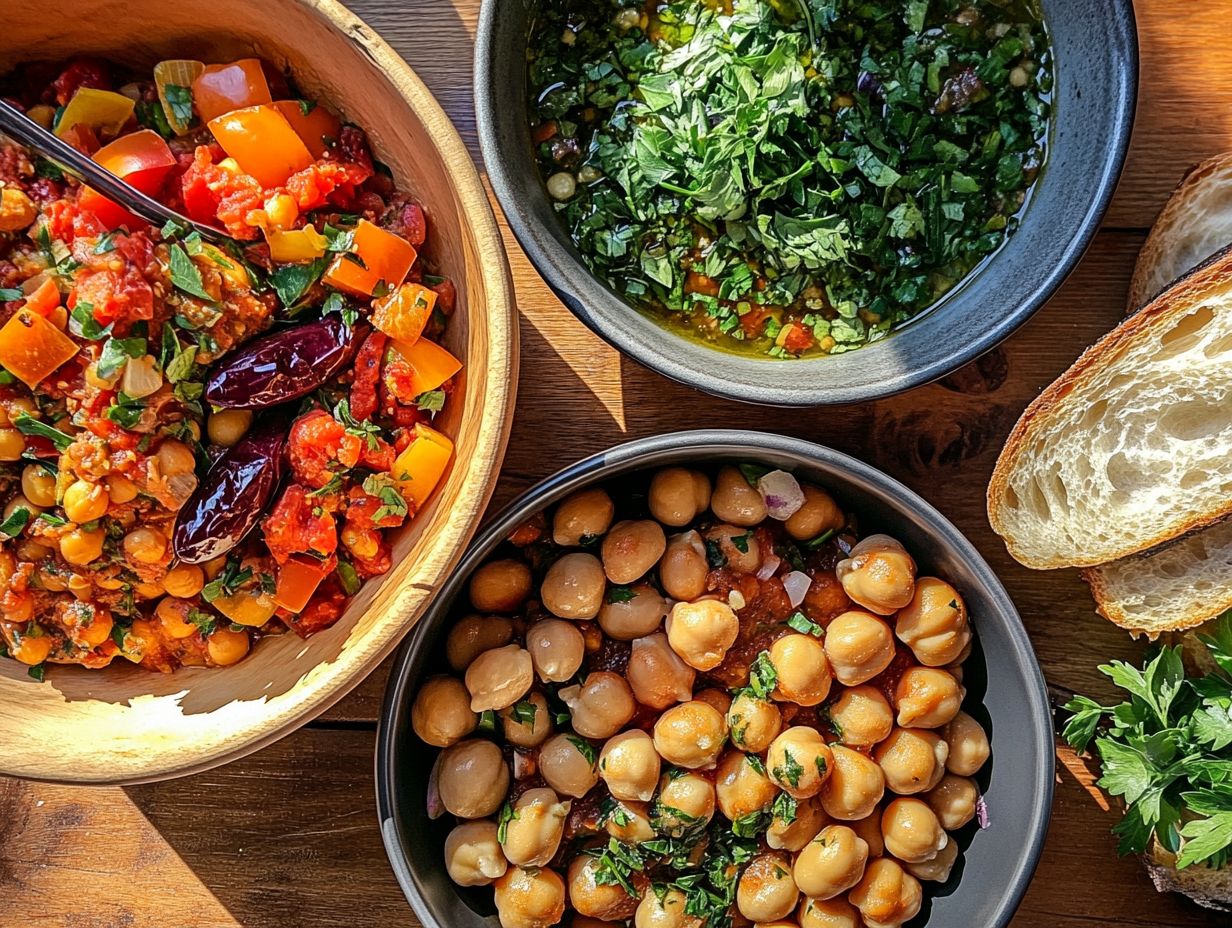 The Mediterranean’s influence on Portuguese cuisine is particularly profound in regions like Alentejo and Ribatejo, where fresh spices, olive oil, and local ingredients come together to create dishes that reflect Portuguese culture. This incorporation of Mediterranean flavors is evident in a variety of traditional dishes, such as Bacalhau Br s, which features salted cod served with onions, potatoes, olives, and olive oil. Feijoada, a bean stew initially influenced by Brazil, also showcases the rich blend of Portuguese spices. Additionally, traditional stews like Caldo Verde often include kale and chorizo, while spices such as piri-piri from Mozambique, along with influences from Asian and Indian cultures like saffron and curry, are used to add depth and warmth to the cuisine.
The Mediterranean’s influence on Portuguese cuisine is particularly profound in regions like Alentejo and Ribatejo, where fresh spices, olive oil, and local ingredients come together to create dishes that reflect Portuguese culture. This incorporation of Mediterranean flavors is evident in a variety of traditional dishes, such as Bacalhau Br s, which features salted cod served with onions, potatoes, olives, and olive oil. Feijoada, a bean stew initially influenced by Brazil, also showcases the rich blend of Portuguese spices. Additionally, traditional stews like Caldo Verde often include kale and chorizo, while spices such as piri-piri from Mozambique, along with influences from Asian and Indian cultures like saffron and curry, are used to add depth and warmth to the cuisine.
Veganism in Portugal
In recent years, veganism has gained significant traction in Portugal, reflecting a global shift towards plant-based diets that emphasize sustainability and health. Platforms like Happy Cow have been instrumental in promoting vegetarian and vegan-friendly restaurants across the country. Traditional Portuguese cuisine, which showcases a variety of vibrant ingredients, has adapted to this trend by exploring numerous vegetarian dishes that celebrate the country’s rich flavors. These dishes make use of local produce and staples, taking advantage of the Mediterranean climate’s ability to grow diverse fruits and vegetables. This culinary evolution not only caters to local residents but also attracts tourists interested in healthier and more ethical eating practices, enhancing Portugal’s appeal as a food destination. Cities like Lisbon and Porto have seen a rise in eateries offering vegan migas and other plant-based options.
The Rise of Plant-Based Diets
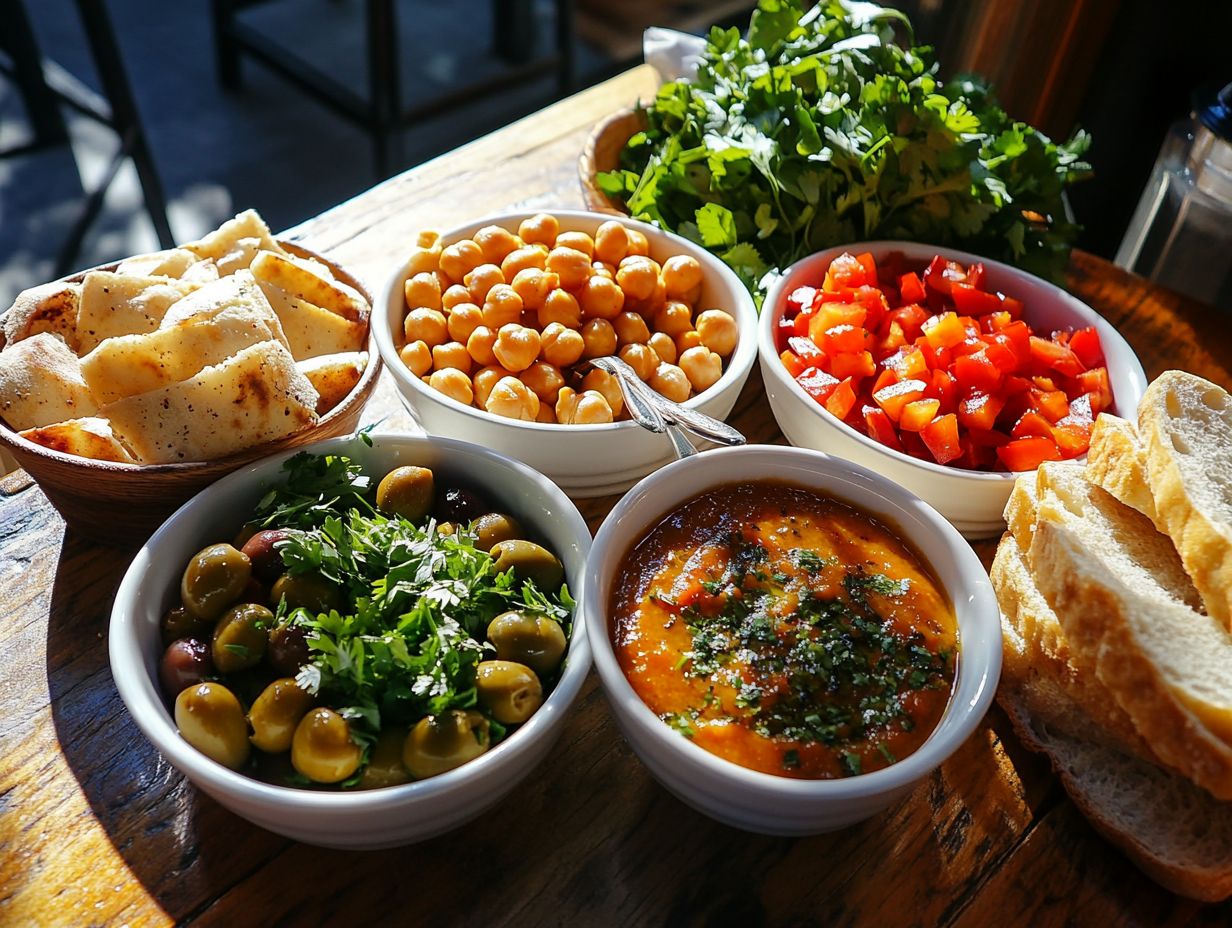 The rise of plant-based diets is transforming the culinary landscape worldwide, and Portugal is no exception. This shift is driven by growing awareness of health benefits and sustainability. More individuals are embracing veganism, which prioritizes the consumption of whole foods, fruits, and vegetables, perfectly aligning with the Mediterranean lifestyle that promotes fresh, seasonal produce. Consequently, this dietary transition is inspiring both chefs and home cooks to rethink traditional Portuguese recipes, resulting in innovative dishes that retain the essence of beloved favorites while incorporating plant-based ingredients. This trend is not solely motivated by personal health; it also arises from heightened environmental consciousness. The impact of animal agriculture on climate change is prompting a reevaluation of food choices. Social media platforms like Facebook play a significant role in spreading awareness and sharing vegan recipes. Culinary innovation plays a crucial role in this movement, as young chefs influenced by global gastronomy integrate plant-based elements into classic dishes like bacalhau br s, reinterpreting them with ingredients such as chickpeas or tofu. Social media platforms are further amplifying these changes by showcasing vibrant, plant-rich meals that challenge traditional notions of Portuguese cuisine. This evolution makes the cuisine more inclusive and sustainable without sacrificing flavor. These sociocultural shifts reflect a broader narrative of a society increasingly committed to holistic well-being.
The rise of plant-based diets is transforming the culinary landscape worldwide, and Portugal is no exception. This shift is driven by growing awareness of health benefits and sustainability. More individuals are embracing veganism, which prioritizes the consumption of whole foods, fruits, and vegetables, perfectly aligning with the Mediterranean lifestyle that promotes fresh, seasonal produce. Consequently, this dietary transition is inspiring both chefs and home cooks to rethink traditional Portuguese recipes, resulting in innovative dishes that retain the essence of beloved favorites while incorporating plant-based ingredients. This trend is not solely motivated by personal health; it also arises from heightened environmental consciousness. The impact of animal agriculture on climate change is prompting a reevaluation of food choices. Social media platforms like Facebook play a significant role in spreading awareness and sharing vegan recipes. Culinary innovation plays a crucial role in this movement, as young chefs influenced by global gastronomy integrate plant-based elements into classic dishes like bacalhau br s, reinterpreting them with ingredients such as chickpeas or tofu. Social media platforms are further amplifying these changes by showcasing vibrant, plant-rich meals that challenge traditional notions of Portuguese cuisine. This evolution makes the cuisine more inclusive and sustainable without sacrificing flavor. These sociocultural shifts reflect a broader narrative of a society increasingly committed to holistic well-being.
Traditional Portuguese Ingredients
Portuguese cuisine, influenced by regions such as Alentejo and Ribatejo, incorporates a variety of local and imported elements from former colonies like Angola, Macau, and Timor-Leste, enriching its culinary landscape. Traditional Portuguese ingredients play a vital role in shaping the country s rich and diverse culinary heritage, which blends Mediterranean influences with local customs and flavors. Key components of Portuguese cuisine include essential staples such as olive oil, which is used generously for cooking and dressings, along with an array of spices like piri piri (bird’s eye chili), paprika, garlic, and parsley that impart warmth and complexity to various dishes. Legumes such as black-eyed peas, vegetables like cremini mushrooms, and a wide variety of fruits are not only significant in traditional recipes but also in modern vegan adaptations. This versatility allows cooks to create healthy, nutritious dishes that honor traditional flavors while looking towards the future.
Commonly Used Ingredients in Vegan Recipes
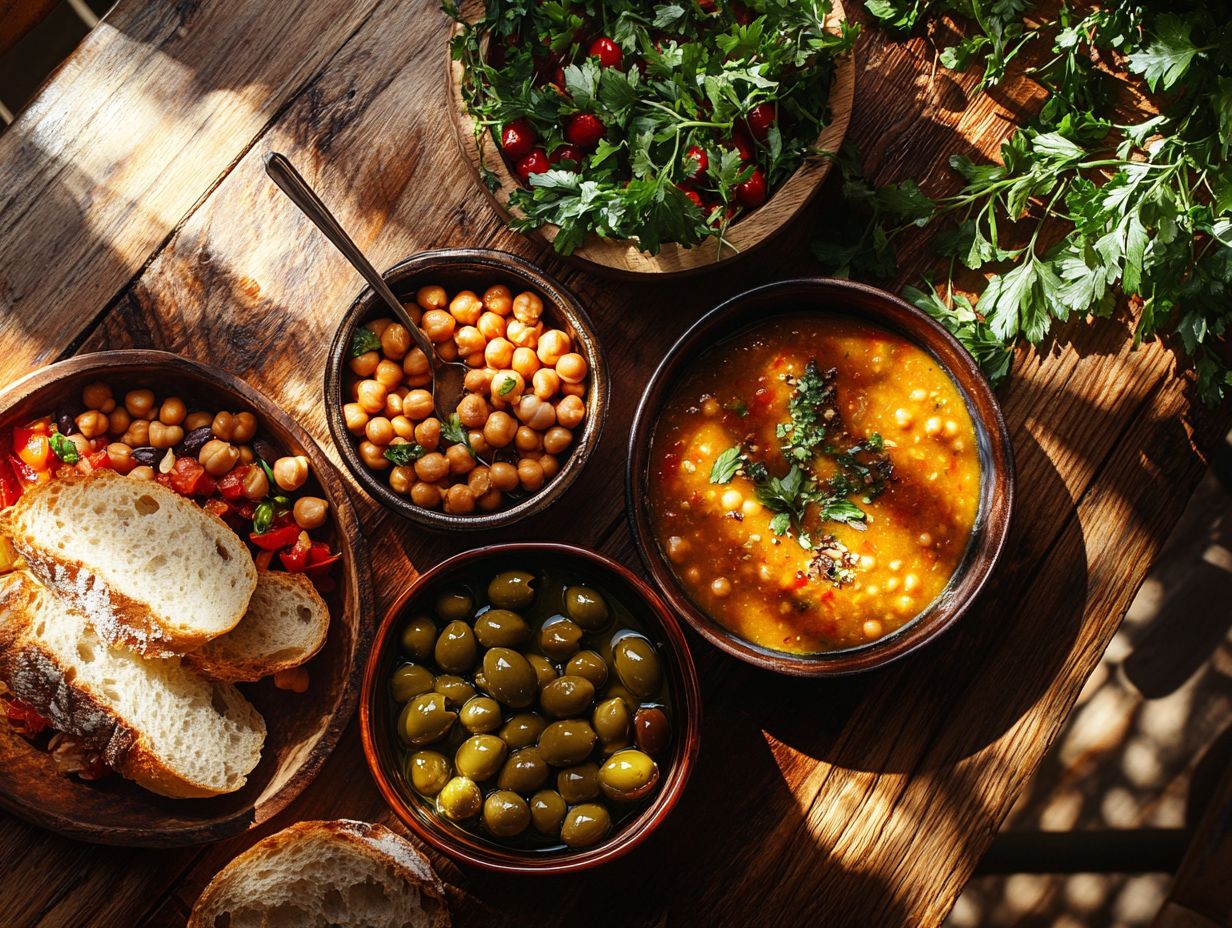 Common ingredients found in vegan recipes reflect the healthy nature of plant-based cooking and showcase the richness of legumes, vegetables, and spices that are essential to Portuguese cuisine. Portuguese mushrooms and black-eyed peas are frequently utilized in various vegan dishes. Black-eyed peas, cremini mushrooms, and seasonal produce are frequently used in vegan dishes, ensuring that meals are both balanced and nutritious. Olive oil is a staple ingredient that adds flavor and offers health benefits, while a variety of spices provide the necessary kick to create a satisfying culinary experience that honors both traditional and contemporary tastes. Along with these primary ingredients, grains such as quinoa and farro play an important role in enhancing the texture and heartiness of meals, often serving as the base for salads or pilafs. Nutritious leafy greens like kale and spinach contribute vibrant color and significant nutritional value, being rich in essential vitamins and minerals. Creative uses of ingredients such as seaweed or smoked paprika can authentically evoke the coastal flavors of Portuguese cuisine, while preparation methods like roasting or saut ing enhance the natural sweetness of vegetables, highlighting their diverse profiles in innovative ways. The thoughtful combination of these ingredients results in dishes that are not only delicious but also deeply nourishing.
Common ingredients found in vegan recipes reflect the healthy nature of plant-based cooking and showcase the richness of legumes, vegetables, and spices that are essential to Portuguese cuisine. Portuguese mushrooms and black-eyed peas are frequently utilized in various vegan dishes. Black-eyed peas, cremini mushrooms, and seasonal produce are frequently used in vegan dishes, ensuring that meals are both balanced and nutritious. Olive oil is a staple ingredient that adds flavor and offers health benefits, while a variety of spices provide the necessary kick to create a satisfying culinary experience that honors both traditional and contemporary tastes. Along with these primary ingredients, grains such as quinoa and farro play an important role in enhancing the texture and heartiness of meals, often serving as the base for salads or pilafs. Nutritious leafy greens like kale and spinach contribute vibrant color and significant nutritional value, being rich in essential vitamins and minerals. Creative uses of ingredients such as seaweed or smoked paprika can authentically evoke the coastal flavors of Portuguese cuisine, while preparation methods like roasting or saut ing enhance the natural sweetness of vegetables, highlighting their diverse profiles in innovative ways. The thoughtful combination of these ingredients results in dishes that are not only delicious but also deeply nourishing.
Popular Vegan Portuguese Dishes
The most popular vegan Portuguese dishes are adaptations of traditional recipes. These modern interpretations of classic flavors demonstrate how plant-based substitutes can replicate the hearty essence of Portuguese cuisine. Notable dishes include:
- vegan Feijoada
- vegan Peixinhos da Horta
- vegan Bacalhau Br s
- vegan Caldo Verde
- vegan Arroz de Pato
- vegan Portuguese Salad
- vegan Bifana
- and many others.
For dessert, options like vegan Portuguese Rice Pudding, vegan Orange Cake, and vegan Arroz Doce are available. These adaptations have garnered the interest of many non-vegans seeking to reduce their meat consumption.
Recipes for Traditional Favorites
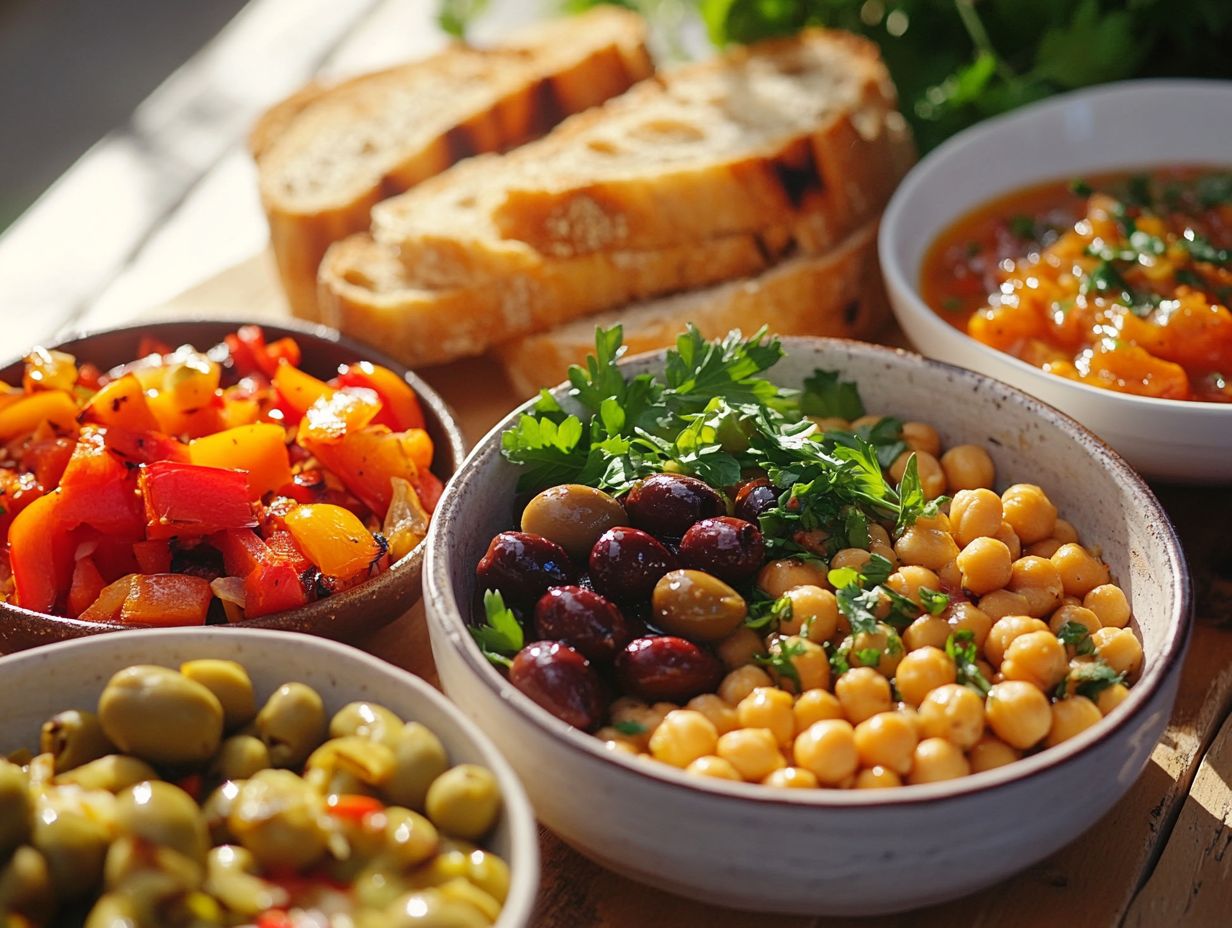 Modified recipes for traditional Portuguese dishes allow home cooks and chefs to savor the rich flavor profiles of Portuguese cuisine without relying on animal products. This approach preserves the cultural essence of these recipes while promoting healthier lifestyle choices. Creative adaptations for a plant-based audience include:
Modified recipes for traditional Portuguese dishes allow home cooks and chefs to savor the rich flavor profiles of Portuguese cuisine without relying on animal products. This approach preserves the cultural essence of these recipes while promoting healthier lifestyle choices. Creative adaptations for a plant-based audience include:
- Vegan Bolo Rei (King Cake)
- Vegan Bolo Rainha (Queen Cake)
- Vegan Olive Salad
With these recipes, the essence of traditional Portuguese celebrations can be enjoyed by everyone. By utilizing traditional preparation methods and incorporating elements of Portuguese cuisine, such as spices and seasonal vegetables, these adaptations ensure that the cravings for the original dishes are satisfied while honoring the cultural heritage of Portuguese culinary traditions. With the abundant options available in plant foods, individuals can immerse themselves in Portuguese gastronomy through modern adaptations. For instance, a Vegan Caldo Verde made with fiber-rich kale and creamy potatoes serves as a warm soup that embodies the heartiness of Portuguese family meals. Similarly, a Vegan Bacalhau Br s a traditional Portuguese cod dish crafted with shredded tofu and healthy olives offers the popular texture and taste of the original without any animal proteins. These adaptations enable the rich culinary landscape of Portugal to be shared with everyone, including those who may be less inclined to enjoy plant-based dishes.
Adding a Healthy Twist to Portuguese Classics
Adding a healthy twist to Portuguese classics is an exciting culinary trend that allows traditional recipes to be enjoyed in a wholesome and modern way. By incorporating nutrient-dense ingredients such as legumes, fresh vegetables, and spices, cooks can create dishes that are not only delicious but also offer health benefits, ensuring a balanced meal for everyone. One popular adaptation is Vegan Caldo Verde, which maintains the comforting warmth of the traditional soup while substituting ingredients for a healthier option. This showcases how culinary creativity can breathe new life into classic Portuguese cuisine.
Incorporating Nutrient-Dense Ingredients
Incorporating nutrient-dense ingredients into vegan cooking is essential for preparing delicious meals that are rich in the vitamins and minerals necessary for maintaining health, in alignment with the Mediterranean diet. Ingredients such as legumes, including black-eyed peas, and vegetables like cremini mushrooms can transform simple recipes into filling and nutritious meals that satisfy hunger while promoting well-being. By emphasizing these ingredients in traditional Portuguese recipes, cooks can adapt cherished dishes to reflect the principles of a nutrient-dense diet. For instance, a classic Portuguese stew can be enhanced with the addition of lentils and kale, which boosts protein content and provides significant dietary fiber. Similarly, a vegan cataplana with chickpeas and vegetables offers a hearty and flavorful alternative. Including nutrient-dense ingredients like sweet potatoes not only enhances the meal’s flavor with natural sweetness but also supplies substantial amounts of vitamins A and C. These vibrant vegetables can be pureed into sauces or roasted to accompany grain-based dishes such as quinoa or brown rice, making it easy to maintain a diverse and balanced vegan diet. This combination of elements pays homage to traditional flavors of Portuguese cuisine while also promoting sustainable cooking practices rooted in the Mediterranean diet.
Tips for Cooking Vegan Portuguese Meals
Incorporate the rich traditions of Alentejo and Ribatejo regions to elevate your dishes. Transforming Portuguese cuisine into vegan versions requires careful attention to achieving the right flavors and textures. Dishes like feijoada and black eyed peas salad can be reinvented with vegan-friendly ingredients. Key tips include utilizing spices and local ingredients, such as olive oil and seasonal vegetables, to replicate the traditional tastes of Portuguese dishes. Exploring influences from Brazil, Angola, and even Macau can add a unique twist to your vegan adaptations. Understanding how to substitute ingredients effectively and provide alternatives for meat, dairy, and fish is essential for preparing authentic vegan Portuguese meals. For instance, the traditional Bolo Rei and Bolo Rainha can be made using plant-based ingredients without sacrificing flavor.
Creating Flavorful and Balanced Dishes
Flavor and balance are essential components of vegan cuisine in Portuguese cooking. Understanding how to harmonize ingredients, spices, and cooking methods is key to creating flavorful and balanced dishes. In traditional Portuguese cooking, the taste and aroma of spices often evoke memories, and these elements can also be incorporated into vegan adaptations of Portuguese recipes. Balanced and flavorful meals not only enhance taste but also contribute to the nutritional value of the dishes. Nowadays, many Portuguese recipes utilize legumes and fresh vegetables, like Portuguese mushrooms and chickpeas, as substitutes for meat, fish, and dairy in vegan cooking. This approach allows vegan recipes to maintain a healthy balance while honoring the original spirit of Portuguese culinary techniques and flavor combinations. Several methods can be employed to enhance the flavors in plant-based Portuguese dishes:
- Using Spices: Traditional meals like feijoada rely on garlic and bay leaves as foundational spices. These ingredients help achieve a balance of flavors that might be lacking in vegan versions if not utilized properly. For instance, instead of chicken or beef, many vegan feijoada recipes incorporate a mix of beans, lentils, and smoky paprika to replicate the original dish’s flavor profile. Drawing inspiration from the spice trade, incorporating spices from Indian culture and Indonesian culture can also enrich the dishes.
- Employing Cooking Methods: Techniques such as slow cooking or roasting can significantly enhance flavor. These methods allow the natural sugars in vegetables to caramelize beautifully. Similarly, roasting legumes like chickpeas adds a delightful texture and flavor to vegan dishes.
- Incorporating Pickled or Fermented Ingredients: Earthy legumes are beautifully complemented by pickled or fermented ingredients such as vinegar, lemon, lime, and fermented vegetables or sauces. A simple yet popular recipe is a salad made with chickpeas, parsley, cumin, and lemon. The addition of vinegar and lemon enhances the legumes flavor, resulting in a more balanced dish, reminiscent of traditional plant Russian salad.
- Utilizing Citrus: Citrus is commonly featured in traditional Portuguese cooking, with many recipes calling for vinegar. The acidity of vinegar pairs wonderfully with the earthiness of legumes and pulses, delivering a flavor balance often missing in vegan dishes.
- Adding Herbs: Many traditional Portuguese recipes call for fresh herbs like cilantro or parsley. Adding these herbs at the end of the cooking process elevates the overall flavor and acidity of the dish. Citrus can also serve as an effective way to achieve balance.
By employing a variety of methods and ingredients, it is possible to create vegan meals that are both flavorful and balanced, celebrating the rich culinary heritage of Portuguese cooking. Desserts like Pumpkin Jam, Orange Cake, and Azevias can also be made vegan, offering sweet delights that honor traditional recipes. Explore platforms like Happy Cow and communities on Facebook to connect with fellow vegan enthusiasts who share a passion for Portuguese cuisine and the Mediterranean climate of Portugal.
